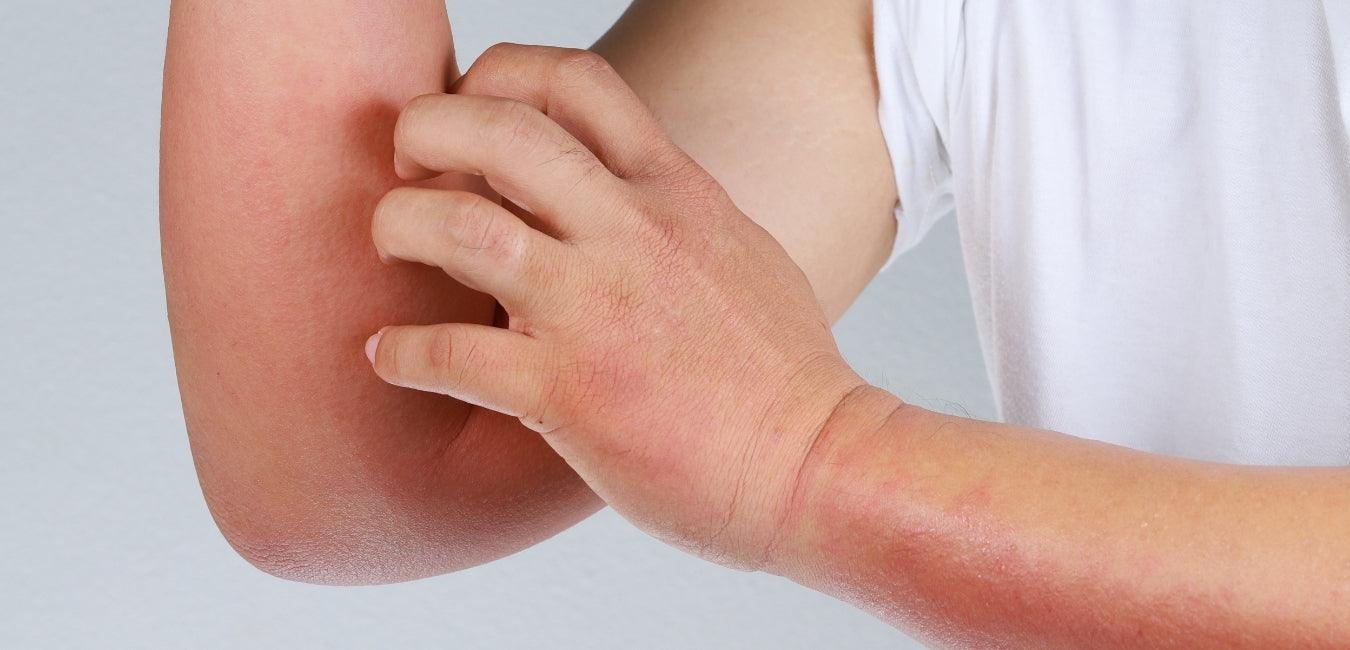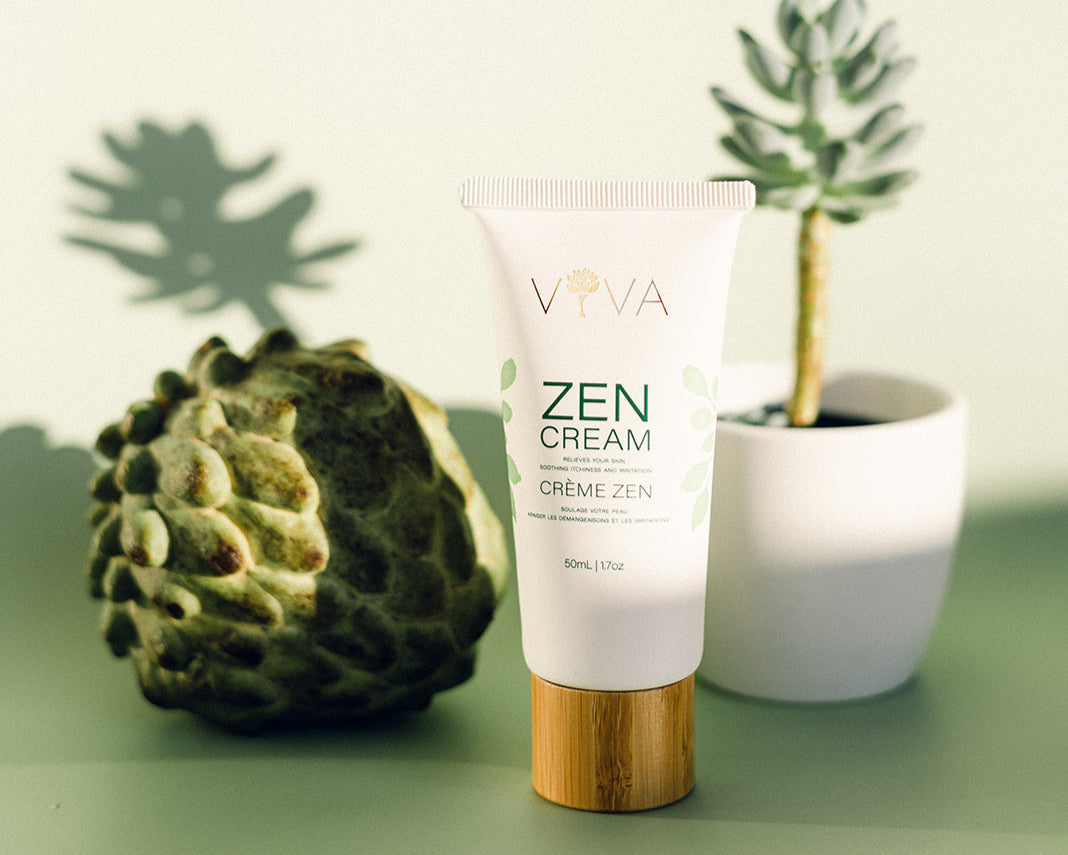Drying, itching, rashes, and redness – may indicate a multiple number of skin conditions such as rosacea, psoriasis and eczema. Although chronic, these skin conditions are usually non-life-threatening. Unpleasant and discomforting as they may be, symptoms can disappear and go into remission with the proper regimen and treatment. Here’s our guide to help you identify your symptoms, possible natural treatments, and things to help prevent any flare ups.
Psoriasis:
Psoriasis is an immune triggered dysfunction that treats your skin like a foreign invader. The body usually grows and sheds skin cells every 30 days. However, for those with psoriasis, the immune systems go into overdrive, producing new skin cells every 3-4 days but instead of shedding the new skin, the skin piles up at the surface creating thick, red patches, also recognized as plaque psoriasis, topped with white scale. These plaques tend to be itchy, tender, and scaly and can be triggered by stress, certain medications, or skin injury.
Natural treatments:
- Layer cream a little thicker on the areas most needed.
- Apply diluted apple cider vinegar to provide relief (do not use on bleeding, cracked patches).
- UV light for 5-10 minutes per day with sunscreen use on areas without psoriasis.
- Incorporating turmeric and omega-3 fatty acids in your diet as they contain anti-inflammatory properties.
Rosacea:
Usually common amongst individuals between 30-50 years old and generally with fair skin, rosacea is caused by broken capillaries that rush blood cells to the surface of the skin. It primarily occurs on the face and usually distinguished by redness, bumps or severe blushing. It is difficult to determine what triggers rosacea as this may differ from one individual to another, but it is recommended to note down when flare-ups happen and back track on key contributing factors, such as stress, spicy foods, alcohol, caffeine, cosmetic products and etc.
Natural Treatments:
- Moisturize with calming and soothing properties such as aloe vera, coconut oil, lavender oil, niacinamides, chamomile and green tea.
- Consuming health foods high in fiber, antioxidants, and good fats such as fruits, vegetables, fish and that regulate inflammation such as ginger, and turmeric.
- Avoid products with salicylic acid or benzoyl peroxide.
- Becoming self-aware of stress and find ways to alleviate tension by mediating, doing yoga or practicing deep breathing exercises.
Eczema:
Starting typically at a young age, eczema, or atopic dermatitis, is an inherited skin condition that goes well beyond the surface of the skin. People with eczema have an over-reactive immune system triggered by external and internal factors by producing inflammation visible through red, itchy patches. Similarly, to psoriasis or rosacea, it is important to be mindful of triggers such as certain clothing detergents, dust, cold weather, fragrances and etc.
Natural Treatments:
- Resist the urge to scratch and use a gentle body wash or clothing detergent.
- Avoid wearing itchy unbreathable fabrics such as wool or polyester. Try instead cotton and linen.
- Use colloidal oatmeal in a bath as it contains natural emollients that calms redness and soothes discomfort (soak for 10-15minutes to reap the most benefits).
- Moisturize, Moisturize, Moisturize!
Your best skin is our priority! Healing the most sensitive skin types from within.
References:
https://www.verywellhealth.com/do-you-have-rosacea-psoriasis-or-eczema-3892103
https://www.thehealthy.com/skin-health/difference-between-rosacea-psoriasis-eczema/
https://greatist.com/eczema/natural-remedies-eczema#natural-remedies


